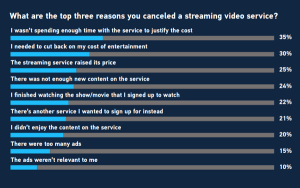The global market environment has been changing and evolving consistently in the past decade, but 2020 presented businesses with major challenges. The global pandemic and the social unrest taking place in different parts of the world forced businesses to adapt to a more dynamic market environment. Many companies have been able to adapt to the changing market environment in the past year, but many companies have had to call it a day.
In 2021, while the world is still struggling to get rid of the pandemic and its ongoing effects, entrepreneurs wanting to establish new businesses need to be warier and flexible than ever. Even before the market became highly unpredictable, 90% of startups failed due to other factors.
Assess Readiness
It is great that you have decided to start a business, but being self-aware and considering all aspects of your idea is one of the first things that you should achieve as a new entrepreneur. Self-awareness is knowing that not every idea you have is going to be that million-dollar idea that is going to get you all the success.
Even after you have narrowed down to that one idea, it is important to consider all the parameters associated with implementing it and assessing your readiness for it. There are many assessment tests online for evaluating your personality and readiness, that you can use to understand where you stand.
You can start with talking to your friends, family, and fellow entrepreneurs to gauge the challenges of operating a business in the current market environment. You should also polish your idea constantly, and work on its intricate details before moving forward.
Conduct market research
Every entrepreneur wishes to conquer the industry that they are stepping into. The first step towards doing so is to understand the ins and outs of your industry better than anyone. Spend enough time on targeted market research and understanding your competitors.
Keep a check on the strategies and approaches that they are opting for, and the extent of success they have been able to achieve from them. This is a good starting point as it will give you a better understanding of the initial strategies and decisions that you should implement.
Moreover, you should also spend enough time understanding your potential customers. You need to assess the demand for your product/service within your target market, consumer behavior, and purchase trends to be able to get an initial idea as to how successful your venture is likely to be.
Set clear goals and forecasts
There is no magic formula that can guarantee success for your new venture, but you can start strong by setting clear goals and forecasts. One of the first things you want to do is set a strong mission and vision for your business that your team will be able to follow.
Going forward with a business without clearly defined goals and forecasts is like setting out on a journey to a faraway destination without a map. It can be scary, full of hurdles and there is a risk of losing your way in the process.
It is important to set SMART (Specific – Measurable – Achievable – Realistic – Timebound) goals that can define the path that you should take to achieve success in your venture. Based on the goals, and all the resources you have at your disposal, you can create forecasts for the future of your business.
Decide on a business model
Deciding on a business model is one of the most important decisions that you will need to make before even embarking on your business. Several considerations go into deciding on a business model including the customer needs, their buying behavior, the market competition, and revenue streams. Simply put, a business model defines the approach you are going to take towards making money.
The business model you choose primarily depends on the nature of your business and the goals you are targeting. Every business can be primarily classified into four categories, namely: seller, reseller, broker, and aggregator. Depending on which of these categories your business falls into, you can then decide on the right approach to target maximum customers.
Figure out your finances
Once you have a business model for your venture, the next step is to plan your finances. Unsurprisingly, your financing decision is one of the most important decisions that you will take before you start a business. When arranging for your startup capital, ensure that you consider all kinds of financing options including personal capital, venture capital, and loans.
You should weigh the pros and cons of each financing option and choose one that offers the most flexibility, and reduces your liabilities as much as possible. You can also consider alternate sources of funding such as P2P lending, and crowdfunding, if traditional means are not favorable for getting the necessary funds. These alternate sources of financing are great in cases where the business is not able to get financing due to a lower credit score or lack of collateral.
Conclusion
Starting a business is no cakewalk, and every business owner – successful and unsuccessful will tell you just how many hurdles there are, in the way of ensuring business performance and growth. Conducting thorough research and considering the right strategies for your business can go a long way in ensuring that the initial phase of the business is a success. Furthermore, considering the right business model and financing option can also be instrumental to the growth of your business.
Business & Finance Articles on Business 2 Community
(40)







